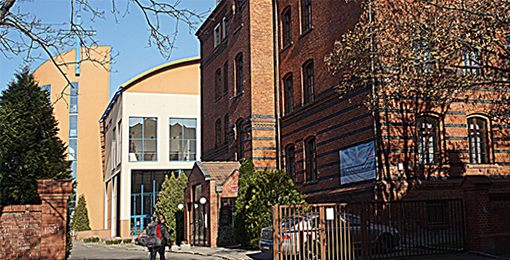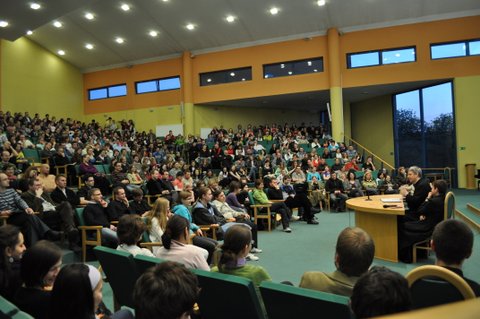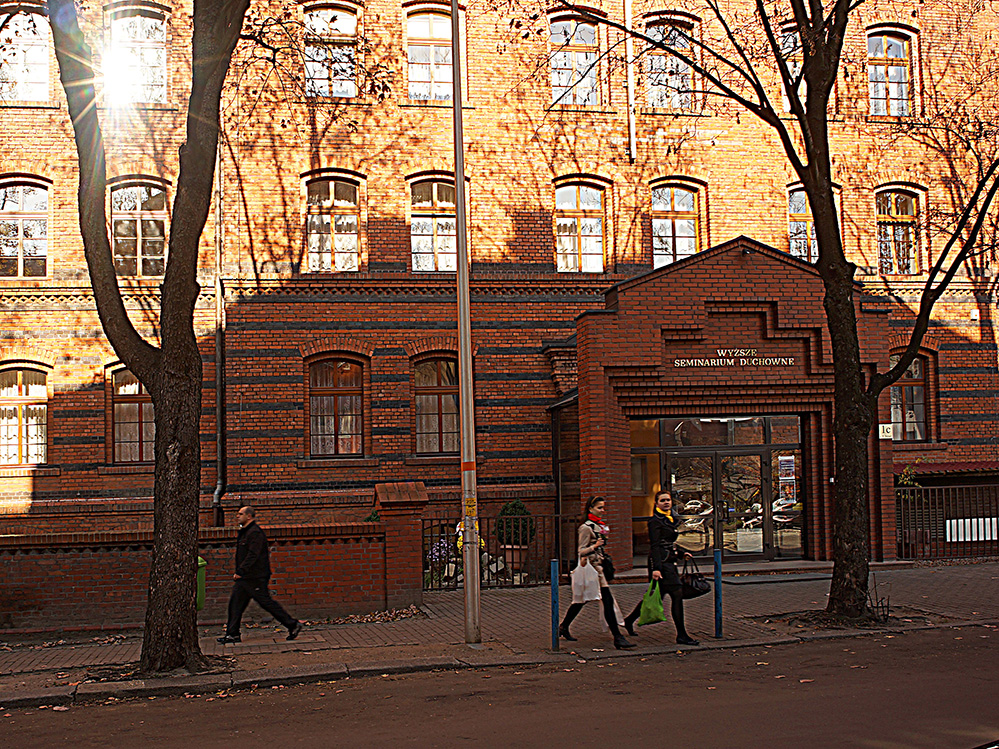Faculty of Theology
The Faculty of Theology has an academic tradition going back to the 1940s. It has been a part of the University of Opole since its creation in 1994. The faculty obtained the right to confer a Doctor of Theology degree in 1995 and a PhD degree in 2011. It also has a right confer the degree of Doctor Habilited in theology. In 2012 the theology programme was recognised as one of the 25 best degree programmes in Poland. The Faculty has splendid facilities and resources for conducting research and educating students: multimedia lecture halls, a computerised library, a reading room, internet café and a sports hall.


Research:
Religion is the basic field of our research. It focuses on rational explanation and substantiation of the contents of Christian beliefs. The research is conducted within the framework of dialogue with other Christian denominations and other religions, also with people of areligious attitudes.
The Individual – family – society. Here the research is focused on family as the basic environment for indidviduals, their life, shaping their identity and relations with others.
Culture. The research focuses on the Mediterranean culture and Silesian cultural heritage with a special emphasis on music. We cooperate with Polish and foreign theology faculties, e.g. in Monastir and Erfurt.
Study programmes:
Theology ponders on what Christian believes in and why. It asks who Christian’s God is and what God is like. It stresses the importance of philosophy for theological studies presented for instance in the course – history of philosophy and God’s philosophy. The basis of theological is the study of the Bible. It introduces the science of God who is the beginning and end of the world and the man. Theology puts Jesus Christ in the centre of its reflection. Theological theory is accompanied by practice – students learn how to deliver the contents of the Christian faith.
Man is the most important object of the theological study – they relation towards themselves, to others and to God; the last relation is regarded as indispensable for the full development of Man.
Musicology is one of very unique university programmes. The study programme is directed to church musicians who want to develop professionally and academically, to future music school teachers and any candidates interested in music culture. The programme is twofold: theoretical – typically musicological (basic musical analysis, theory, aesthetics and music history) and practical – musical skills (specialist: playing the organ, conducting music groups, like Gregorian choirs, and general: harmony, counterpoint and ear training)
Family science introduces the student to the knowledge of the family developed by various sciences, like philosophical anthropology, psychology, sociology, law and theology. Thanks to this knowledge the student gains a wide and may-sided view of family problems. They learn to see the family as a natural place for human life development and thus understand the importance of the family for an individual. The course on law and sociology gives an insight into family social aspects and shows how state institutions and NGOs help the family and what legal aspects of family help are. The family is defined as a basic social cell. The theological lecture presents the family concept originated in the Bible.
Mediterranean Culture focuses on the knowledge of Mediterranean countries, nations, cultures and religions from historical, philological, cultural religious and political perspectives. The student is introduced to the beginnings of European civilisation and studies those aspects of classical cultures which influenced the contemporary mentality of Europeans. The history of culture, philosophy, works of art, religions (Judaism, Christianity and Islam) are just some of the objects of study in this programme.
Future careers:
The graduates of theology can become priests, or religion teachers.
Family Science graduates can work in family counselling centres, schools, local government institutions for family assistance.
Musicology educates church musicians, choir and music ensembles conductors and music teachers.
Graduates of Mediterranean Culture studies can work in museums, cultural institutions, art galleries, and travel agencies and companies cooperating with Mediterranean countries.

Contact:
University of Opole
ul. Drzymały 1a
45-342 Opole
Poland
Phone: +48 77 442 37 68
E-mail: dziekanatwt@uni.opole.pl
Web: www.wt.uni.opole.pl
